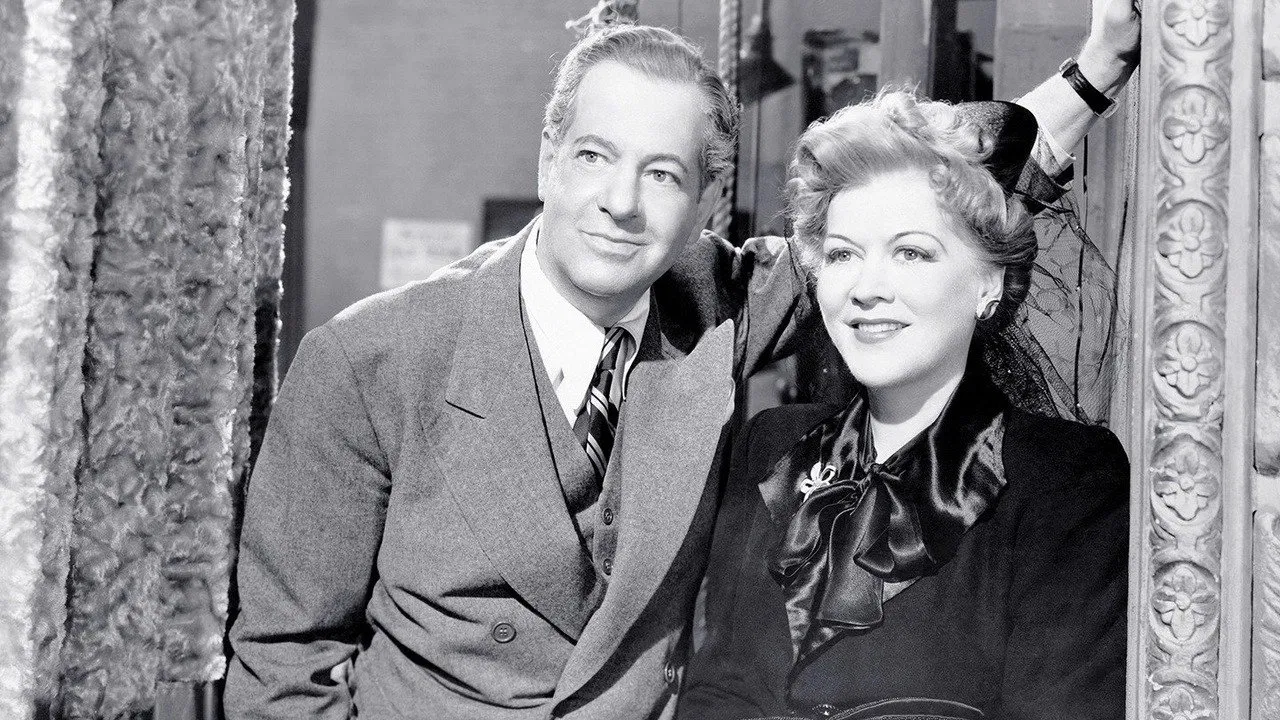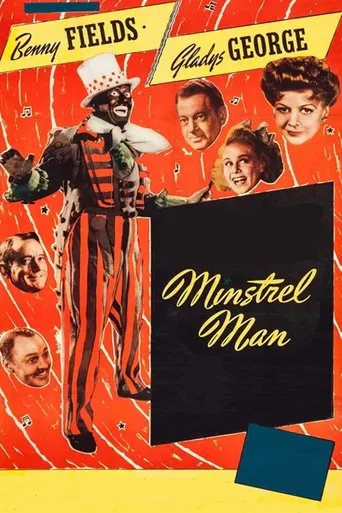

I'm not sure and I'm certain to be corrected if I'm wrong, but Minstrel Man might very well be the only PRC film ever to get recognition from the Academy. It received two Oscar nominations for Best Song and for musical scoring. A studio known for its pinch penny budgets for noirs, westerns, and a few horror films producing a musical? It's worth the novelty just to watch the thing.A year before Minstrel Man came out Paramount even used Technicolor in its minstrel film Dixie that starred Bing Crosby. The folks at PRC thought that maybe a minstrel film would work for them. Of course they did not have Crosby or color.The lead here is Benny Fields who was a well known song and dance man and became even better known when he teamed on the stage and in life with Blossom Seeley. Blossom was smart enough to stay away from this.Good song and dance man that he was Fields just couldn't act. When not singing he's wooden and as charming as a wet napkin. The story covers some thirty years of the life of Fields's character Dixie Boy Johnson.The climax involves the revival of minstrel shows. I mean in 1944, really?Seasoned performers like Gladys George and Roscoe Karns are wasted as the surrogate parents to the daughter of Dixie Boy Johnson. And a pretty perky blond like Molly Lamont wants to hide that beauty under cork makeup. Give me a break. It's more than the subject matter that's kept this film under wraps.
... View MoreThis PRC cheapie made the Poverty Row studio a lot of money but really, it is very routine and not that interesting or groundbreaking. 'Dixie Boy' Johnson is a vaudeville performer, played by Benny Fields, who had been in vaudeville himself. He has a lovely voice to sing songs like 'Melancholy Baby' and 'Carolina' but he can't act to save his life; which is a pity considering he is in the lead role.After his wife dies giving birth to a daughter (who grows up to be 'Dixie Girl' Johnson), 'Dixie Boy' runs out and starts a life incognito, elsewhere, eventually maybe being lost at sea ... at this point I gave up and just waited patiently for the film to end. Of course, 'Dixie Girl' Johnson becomes a star in her own right, there's a reconciliation with her long-lost dad, and all is well with the world.Interesting what passed as entertainment in the 1940s ... but actually, this one isn't a turkey - the musical numbers are good, and with Gladys George in the cast at least we get a bit of glamour.
... View MoreThe great Al himself might have pounced on the role of a great blackface minstrel singer who, after his wife dies in childbirth, becomes bitter and resentful, leaves his infant daughter with friends, tours in minstrelsy, is supposedly lost in the Morro Castle disaster at sea, and miraculously returns to be reunited with his now-grown-up little girl, who is opening in a brand-new 1944 minstrel show. The movie blithely pretends that minstrel shows are still up-to-date and wildly popular, and thus exists in a kind of vacuum. The fine Hollywood songwriter Harry Revel, who had seen better days, wrote the very derivative melodies, which were scored by no less than Ferde Grofe (of the "Grand Canyon Suite"), and it looks like the Grade-Z studio, PRC, actually spent some money on the sets and costumes, if not the cast, which consists mostly of folks on the way up or down. Gladys George, an actual Best Actress Oscar nominee back when (for "Valiant is the Word for Carrie"), lends some minimal class, and Roscoe Karns gets to display more range than his A pictures granted him; even a young, full-voiced John Raitt turns up, though he's unrecognizable in blackface. Benny Fields is, as other posters have noted, no actor and not the best vocalizer, either, but he does convey some sincerity, and it's kind of touching to see such an unappetizing and over-the-hill guy attempt a conventional leading man role. Judy Clark, as his daughter, has the pizazz and confidence of an A-picture starlet. If you can stomach all the blackface (and there's a lot of it) and the clichés piling up, you'll be pleased at the picture's efficiency and unpretentiousness. And watching a "Mammy"-"Sonny Boy"-style story nearly 20 years after it went out fashion is sort of fascinating.
... View MoreThis is a very short movie -- a little over one hour. For a movie this short it tries to hard to look at growth, defeat, and recovery. Many of the scenes seem to come from other movies. Many of the actresses seem to be mimicking others also -- a blond Ginger Rodgers type, the child star growing up, an Al Jolson type lead. despite this we enjoyed watching this film. The staging of the minstrel numbers was enjoyable and gave some insight into techniques that are no longer in use. the ubiquitous black face will be a turn off to many. Black face appears in many of the major scenes. The version we saw was on DVD. The transfer was acceptable especially considering the bargain basement price, but many of the blacks were washed out. For those interested in musicals, this clearly second level, film shows what happens when garland, Astaire and the other greats are missing
... View More